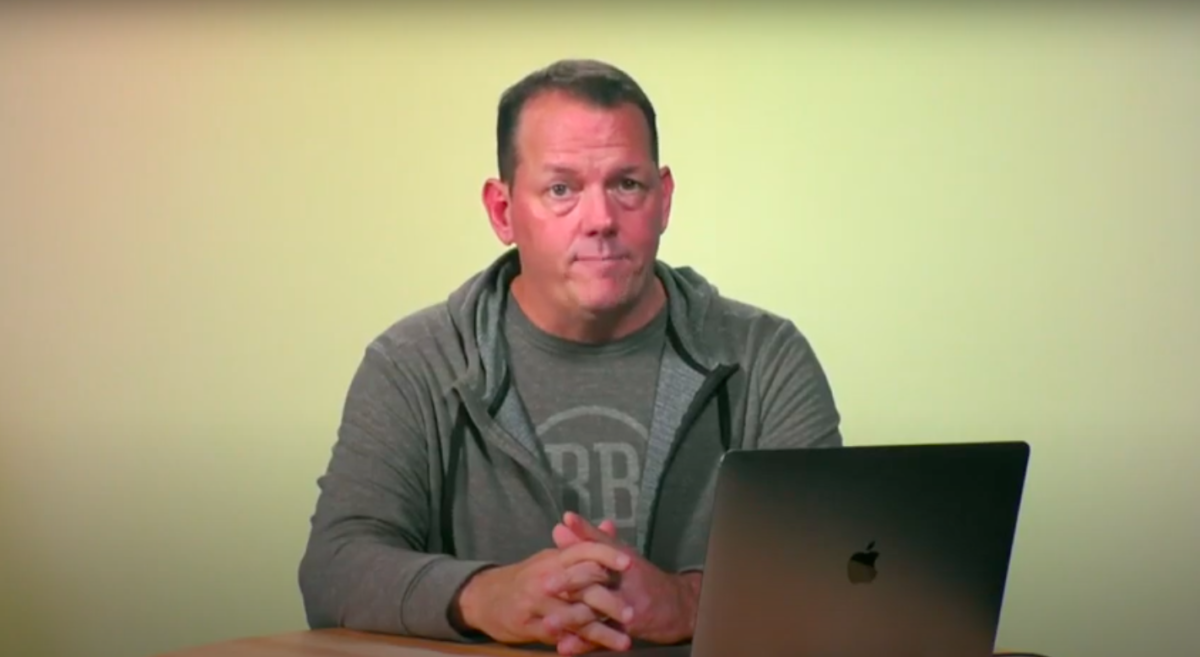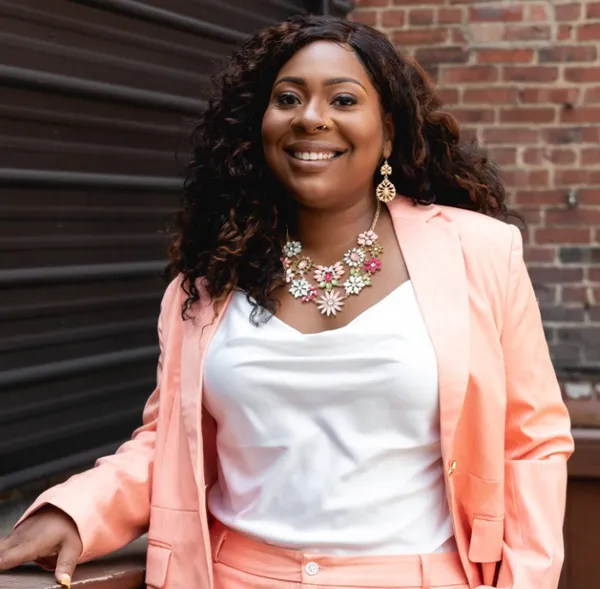Thorne is the founder and CEO of Pittsburgh’s Blanket and Board, an event planning company that “specializes in unique and innovative intimate gatherings and picnics featuring our charcuterie menu to promote self-care, civil discourse and connection.”
RustBuilt Pittsburgh recently caught up with Thorne — a former social worker — to talk about mental health, committing to a career of entrepreneurship and the next year of growth. Read her full Q&A and watch the full interview below. The transcript of the interview has been edited for length and clarity.
1. How did you come to do this work and why is it so important to you personally?
Blanket and Board was started in 2020 in the middle of the pandemic. At the time, I was a trauma therapist working in the schools and working with children who had really complex trauma, and we were home, and so it was really hard for me to reach my family. And then not too long after the murder of George Floyd happened and probably, like you all, I was online just reading the comments. It was just a really hard time for everyone. I think there was a time where everyone was just talking at each other. No one was really listening to each other. People were blaming each other.
And so I wanted to host a self-care Sunday for my friends, particularly my friends of color to process the trauma and the grief that we were all experiencing at that time due to the pandemic, but also due to the continued injustice of people of color here in the US. That’s how it started.
I paid for maybe a $5 ad on Facebook. I presented it to my friends. I was like, do you guys think this is a good idea? And they were like, yeah. So I paid for an ad on Facebook, NextPittsburgh picked it up, and then I had my very first customer. So it was definitely not something that I had planned to go into business for. I’m a social worker at heart. This allowed me to still utilize my skillset as a therapist and as a social worker to facilitate difficult conversations amongst people.
2. What was your lightbulb moment for Blanket and Board?
I think once there became an interest from the community, I was just like, oh, OK. Like, other people need this too. We would get inquiries of families saying they haven’t seen their friends or they haven’t seen their grandparents in a really long time. And at the time, picnics were a safe and socially distant way for people to get outside and really enjoy nature and be able to do it in a safe socially distant way. So after we started to get a lot of input from the community.
I just noticed that there was a need for this and people wanted to detach from the internet, and people wanted to get outside and reconnect with one another. And what better way to do that than over food and over nature in Pittsburgh’s parks?
3. What is the elevator pitch for Blanket and Board?
Blanket and Board specializes in unique and innovative intimate gatherings and picnics featuring our charcuterie menu to promote self-care, civil discourse and connection. What we really try to do is utilize nature and food to connect people.
4. Talk through your strategy in building a team around you.
I don’t think I had a strategy. I know that I wanted to work with someone who was strong in some of the skill sets that I lacked. So actually our operations manager, Nikki, I used to work with her at the county. She was a supervisor. She was always extremely organized, always very detail oriented, and I think I envied her for that. She left so she could spend more time with her family, and I reached out to her and I was like, Hey, I don’t know why I didn’t think of this before, but I think that you would be perfect for Blanket and Board. And it still allowed her to be at home with her, with her family.
Another person as part of my team, T’jha, she actually reached out to me and was very curious about any sort of position that Blanket and Board had because she liked the mission, she liked the model, and I think I was just super blown away by the initiative. Because I don’t think that’s something that we see a lot these days — people showing initiative and wanting to work for small businesses. I had a few interns, and I used to always be like, why would they wanna work with a small business? I had finance interns that had opportunities to work at Chase and Merrill Lynch, and eventually they went on to work at those companies. But it was cool knowing that they got their roots started at a small business, which was Blanket and Board.
5. What has surprised you most about starting your own business?
Honestly, the thing that has surprised me the most is how generous people and other business owners and entrepreneurs are with their time and their resources and their energy to want to invest in you. As the first person in my immediate family that has pursued entrepreneurship, no one really talked to me about the skills, the legalities, the structures, and just the up and downs of running a small business. So if it weren’t for the small business community in Pittsburgh — like the Small Business Development Center at Pitt, programs like Bridgeway Capital — I don’t know where I would be, because they were with me from the very beginning to help me initially write Blanket and Board’s business plan. I’ve just been surprised at everyone’s generosity.
6. Talk through one of your daily rituals.
I’m being vulnerable here, but I actually don’t have too many daily rituals. And I think that’s probably one of the hardest things about being an entrepreneur is because it requires a lot of structure and organization to meet your goals. And if I’m being honest, I think every day I try to incorporate rituals into my life that I know will benefit me particularly.
I would probably say the biggest one is focusing on my mental health. As a therapist, I’ve run Blanket and Board probably the first three years still working full time as a social worker. There were lots of times where other people’s trauma and experiences were dumped on me. As an impact, you take on those experiences.
Knowing that when I go to the gym in the morning, I feel so much better and it’s something that actually kicks off my day, knowing that when I meditate and I wake up early and I take time for myself, knowing that I’m productive during that time, I strive to wake up at 5 a.m. every morning. It doesn’t necessarily happen, but every day I do try.
7. What is a recent challenge you faced as an entrepreneur and how did you overcome it? What lessons did you take away from it?
I think one of the recent challenges that I faced was trying to make an intentional decision to go into full-time entrepreneurship. When I first told my grandparents that I was like taking a leave from my job. The first thing they said was, “What about your pension and benefits?” And I was like, yeah. I was like, but if I built this business and it becomes successful, all of that will come and I’ll be able to provide that for myself.
And it was scary. I’m a single mom. I’ve spent most of my life, investing into my social work career. And it was a leap of faith, going into full-time entrepreneurship. But I got to a point where I had to pick one. My mind, my body was not capable of doing both anymore, so I had to leave.
8. What does the next year look like for Blanket and Board?
So the next year is gonna look really fun. Hopefully we’re launching this Double Decker bus that’ll be used as a mobile event space in the city of Pittsburgh, and I’m really excited to just get that up and running. I’m really excited to build a bigger team. Other than myself, Nikki, and T’jha and some of our other event coordinators, I would like to have a solid team and get Blanket and Board to the point where I don’t have to be as involved and I can really focus on our mission, which is being able to facilitate those conversations, raise awareness to different issues around the city of Pittsburgh, particularly around women, young girls, trauma and the plight of people of color in the city.
9. What is a key piece of advice you received that you want to share with other founders?
You can’t do it alone. While AI is taking over the world, I firmly believe that humans are dependent on one another. And we can’t do this alone. You can try, but you’ll be exhausted. I don’t think that it’ll work in a way that it can if you build a village and build a community around you to be able to support you. Being an entrepreneur can be isolating, so make sure you surround yourself with good people that are willing to invest important to you.
10. How can our regional startup community help your efforts?
You guys can help us by booking with us. So we offer picnics. We offer grazing tables. We’ll offer different pop-up events on the bus. We have a [Honeycomb Credit] campaign that’s launching. We’re trying to raise $32,000 to continue to finish the renovations for the mobile event space.
Also, email us different nonprofits that you’re passionate about. Throughout the year, we like to give away free self-care picnics to vulnerable populations. On Mother’s Day, we always give away a picnic to mothers that have lost children to gun violence. So if you have a group particularly that focuses on people of color or young girls and women that you feel could benefit from having a self-care picnic, email us at blanketandboard@gmail.com and I’ll be very excited to be able to pull that together for them.
The other part is something that’s really important to me is to listen and try to understand Black entrepreneurs in the city of Pittsburgh. Less than 1% of the small businesses or businesses in Pittsburgh are Black owned. And I see a lot of Black-owned businesses starting, but sustainability is something that always becomes a barrier, and that’s due to lots of things. It’s due to lack of access to capital.
If I’m being honest, like the good old boys club, Pittsburgh’s a very white city where it feels like everybody is in these silos and they really don’t have lots of opportunities to meet and to talk to other people who may not look like them. I encourage you, whoever you are, to get outside in the city and explore, and talk to and have conversations with people that look different than you. Because you may find that it’ll open your mind up to a lot of things that you may never have known. You get to learn from people that have different experiences than you, and it provides you an opportunity to hopefully use your privilege to elevate the voices of Black entrepreneurs in Pittsburgh.
Before you go...
To keep our site paywall-free, we’re launching a campaign to raise $25,000 by the end of the year. We believe information about entrepreneurs and tech should be accessible to everyone and your support helps make that happen, because journalism costs money.
Can we count on you? Your contribution to the Technical.ly Journalism Fund is tax-deductible.
Join our growing Slack community
Join 5,000 tech professionals and entrepreneurs in our community Slack today!



